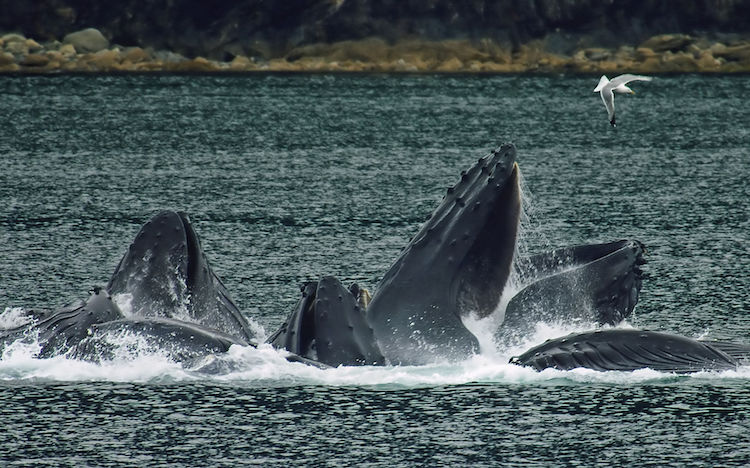By Kelsey Davenport, Julia Masterson, and Sang-Min Kim
While Kelsey Davenport is director for nonproliferation policy, Julia Masterson is research associate, and Sang-Min Kim is Scoville Fellow at the Arms Control Association. This article first appeared in Arms Control Now of the Association on August 11, 2021.
WAHINGTON, DC (IDN) — Iranian President Ebrahim Raisi pledged to pursue “smart engagement” in order to lift sanctions on Iran during his Aug. 5 inauguration speech.
Raisi characterized the U.S. sanctions as oppressive and said his government would support “a diplomatic plan that achieves this goal,” likely referring to efforts to restore U.S. and Iranian compliance with the 2015 nuclear deal, known as the Joint Comprehensive Plan of Action (JCPOA). He also said that Iran’s nuclear program is “completely peaceful” and reiterated the official line that “Iran has placed a religious ban on nuclear weapons.”
Talks to restore the JCPOA have remained stalled since Raisi’s election in June but will likely resume in September according to EU officials. EU foreign policy chief and coordinator of the P4+1 group (China, France, Germany, Russia, and the United Kingdom), Enrique Mora, attended the inauguration and met with Raisi’s presumed Foreign Minister, Hossein Amir-Abdollahian. Mora was criticized for attending the inauguration, due in large part to Raisi’s human rights record, but his office defended the decision, telling Radio Farda August 5 that it is “crucial to engage diplomatically with the new administration” and to directly pass along messages.
Amir-Abdollahian is an experienced diplomat that worked for the Foreign Ministry from 2005-2016. He participated in talks with the United States in 2007 over the situation in Iraq, but it is unclear how involved he will be in future efforts to restore the JCPOA. Iranian news outlets reported August 10 that the nuclear file will be moved from the Foreign Ministry, which handled it during the Rouhani administration, to the Supreme National Security Council (SNSC). The SNSC will approach the negotiations on the JCPOA with “new instructions” and “new strategies,” according to news outlets.
The SNSC is a 12-member body that is presided over by Iran’s president and tasked with determining national security policies and aligning domestic policies with national security strategies. The membership includes two representatives chosen by the Supreme Leader. The current secretary, Ali Shamkhani is one of the Supreme Leader’s chosen representatives. Shamkhani also served on the committee that reviewed the progress made by the Rouhani team during the six rounds of talks in Vienna on the JCPOA after Raisi was elected in June.
The SNSC spokesperson, Keyvan Khosravi, said in July that the committee determined that the Vienna talks failed to reach agreement on several key areas because of the “bullying” of U.S. and European parties. Khosravi’s statement is contrary to remarks from former President Hassan Rouhani, who said a deal was possible, if not for Iran’s 2020 nuclear law (see below for details) and will likely inform the Raisi government’s approach.
Rhetorically, the Raisi administration appears poised to take a harder line on the negotiations and may try to leverage its nuclear violations for greater concessions from the United States.
In an August 9 press briefing, Foreign Ministry spokesman Saeed Khatibzadeh also said that the Biden administration needs to return to talks in Vienna with a new, “realistic approach” so that a conclusion is reached in the “shortest time.”
The United States has made clear it is willing to return to negotiations but is unlikely to change course. In an Aug. 5 press briefing, State Department spokesman Ned Price said the United States is waiting to see what approach the new Raisi government takes and hopes Iran “seizes the opportunity now to advance diplomatic solutions.” He said the United States has made very clear it is prepared to resume talks in Vienna and expects that the “seventh round would pick up where the sixth round has left off.”
Price also reiterated the U.S. warning that “this process cannot go on indefinitely” and the timeframe for restoring the JCPOA “won’t last forever.”
The United States has not specified when that window will close, but Price indicated that if the United States does not believe that the nonproliferation benefits of the JCPOA can be restored because of Iran’s nuclear advances, the U.S. calculus will change.
It is unclear if, when talks resume, the United States and Iran will meet directly. During the prior six rounds, Mora served as an intermediary during the indirect talks. Raisi is, however, prepared to engage with the European parties to the deal. During an August 9 phone call with French President Emmanuel Macron, Raisi reportedly emphasized that the United States and the other parties to the JCPOA should honor their commitments under the nuclear deal. He also said that Iran’s “rights and interest” must be ensured in any plan to restore the JCPOA.
Macron told Raisi that France would like to see a resumption of talks as quickly as possible and is committed to finding a solution to restore the JCPOA. [IDN-InDepthNews — 14 August 2021]
Photo: Ebrahim Raisi. Source: Deutsche Welle.
IDN is the flagship agency of the Non-profit International Press Syndicate.
Visit us on Facebook and Twitter.
We believe in the free flow of information. Republish our articles for free, online or in print, under Creative Commons Attribution 4.0 International, except for articles that are republished with permission.

